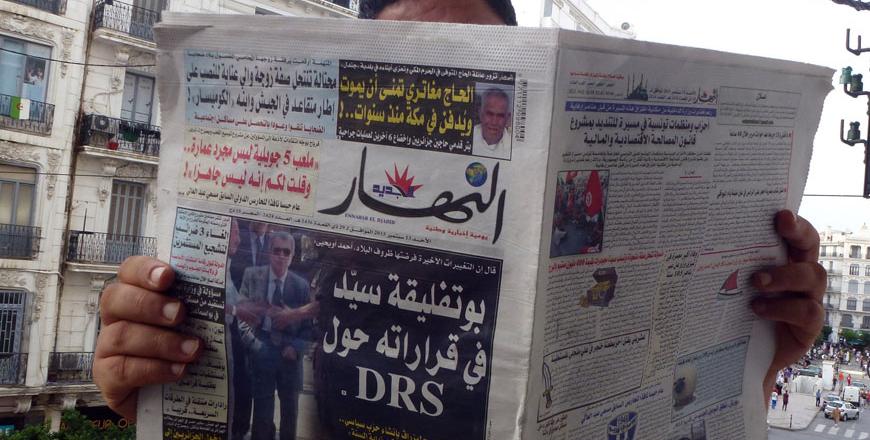You are here
Algeria’s Bouteflika sacks generals to curb power of military intelligence
By Reuters - Sep 11,2015 - Last updated at Sep 11,2015
ALGIERS — Algerian President Abdelaziz Bouteflika has sacked several top generals, security sources say, in his latest move to curb the power of the DRS military intelligence service which has long influenced politics from behind the scenes.
The purged generals included the head of presidential security and the director of internal security, the sources said.
Both worked under DRS chief General Mohamed Mediene, who has played the role of political kingmaker for several decades by seeking to influence leadership choices behind the scenes.
Changes in the security apparatus are closely watched in Algeria, which has become a key partner in the Western campaign against Islamist militants since emerging in 2002 from more than a decade of conflict during which 200,000 people died.
Though re-elected last year to a fourth term, Bouteflika, 78, has rarely been seen in public since recovering from a stroke in 2013, fuelling speculation in local media over his ability to serve out his mandate, which ends in 2019.
The sacked officials' duties have been transferred to chief of staff and deputy defence minister General Ahmed Gaed Salah, one of Bouteflika's closest allies, the sources said.
Reliant on oil and gas for 60 per cent of its budget and 95 per cent of exports, the North African state has been hit by a drastic oil price fall that has slashed its energy revenues by half this year.
Waning influence
Bouteflika began easing the military and its DRS intelligence wing out of the political sphere before his re-election last April, analysts said, preparing for his eventual departure after more than 15 years in power.
This month, the DRS' elite anti-terrorism unit, known by its French acronym GIS, was dissolved and its members placed under the authority of the army, one security source said.
"A DRS with less, or zero, political and economic prerogatives will reinforce its capabilities to focus on its core business, which is to collect intelligence and put it in the hands of the chief of staff and the president," said the security source, who asked not to be named because he was not authorised to speak to the media.
Other decisions affecting the DRS were the dissolution over the last few days of a unit in charge of economic intelligence, and the placing of the national centre for surveillance under the authority of the chief of staff, two sources told Reuters.
In another move, authorities this month arrested Abdelkader Ait Ouradi, a former DRS counter-terrorism chief. Charges have not been made public, but he is being held in the military prison of Blida, security sources said.
Also known as General Hassan, he was for a decade the director of the SCORAT counter-terrorism centre, in charge of the fight against armed groups in Algeria.
Speculation in the local media has centred on his possible role in investigating corruption. But some analysts see the arrest of the former top DRS official and Mediene ally as another sign of the waning influence of the intelligence agency.
Related Articles
ALGIERS — Algerian President Abdelaziz Bouteflika has dissolved the long-standing military spy directorate known as the DRS, creating a new
ALGIERS — Said Bouteflika, the powerful brother of deposed Algerian president Abdelaziz Bouteflika, was arrested Saturday along wi
ALGIERS — Algerian leader Abdelaziz Bouteflika has replaced his powerful intelligence chief, the presidency announced Sunday, confirming his


















